Review for 1990: The Complete Collection
‘1990’ is a fantastic series. Though originally airing in 1977, it has that ‘binge watch’ quality that we tend to associate more with more contemporary box-set series on Netflix. It’s a real page turner; once you are 2-3 episodes in you won’t want to stop until the final credits roll. It’s a transporting experience, drawing you quickly into a depressing alternate reality of a near-dystopian future where, in tribute to Orwell’s ‘1984’, the civil servants and politicians have all but successfully removed the inconveniences of democracy.
Created (on a budget) by Wilfred Greatorex (whose name became synonymous with great drama like Secret Army, The Plane Makers and its sequel The Power Game, Hine, Brett, and Man At The Top; all personal favourites), the series seems alarmingly prescient today.
Before I get too far into this, although I normally side-step offers like this, if you want to buy the series, then you can do so using this link to Simply Home Entertainment which gives My Reviewer readers an exclusive 10% off anything. I should add there is absolutely no incentive in this for any of us here at Reviewer Towers, just a pre-Christmas gift for you lot. Plus the more we support archive releases and distributors like Simply Home Entertainment, Network and Renown Pictures etc, the more releases we’ll get. Let’s face it – this is the stuff you’ll never see on Netflix or Amazon Prime.
1990 tells a chilling tale of a bleak and nightmarish future Britain where individual rights have been replaced by rights that are, in theory, for the common good. Government bureaucracy is out of control. The lives of ordinary citizens are in the hands of the Home Office's corrupt and overbearing Public Control Department (the notorious ‘PCD’), which has its watchful eye on everyone to monitor and expose all possible and imaginary threats to the country.
Greatorex described his series as "Nineteen Eighty-Four plus six" because of the parallel themes with Orwell’s prophetic novel. The PCD uses sophisticated surveillance systems and computers to expose anyone threatening the status quo. Special State-sanctioned brainwashing units, cunningly disguised as country ‘treatment centres’, are ruthlessly used to suppress independent thought and "cure" dissidents. Torture techniques and mind-bending ‘truth drugs’ leave many visitors in a permanently vegetative state; harmless to the state but zombie-like.
A strict rationing of food, alcohol and travel is imposed, and ID cards are required to work, which can be withdrawn by the state at any time. Free speech is forbidden, censorship is rife, and with no rule of law to protect the vulnerable, all citizens are left at the mercy of the state's tyrannical control. Or so it seems...
Enter Jim Kyle – righteous journalist and dissident extraordinaire, cool as a cucumber when he needs to be, but burning with anger when the guards drop. Edward Woodward (somewhere between his roles in Callan and The Equaliser) is perfect for the role and utterly dominates the series. He’s working for one of the very last ‘independent’ newspapers, but one that is quickly losing its teeth with editors and staff fearful of state repercussions.
But he’s also doubling as a freedom fighter; helping abused scientists and others escape to other lands, like the USA. Emigration is illegal and foreign travel allowed only under extreme circumstances, but Jim and his team are one step ahead of the state – most the time.
His opposite, as head of the PCD, Herbert Skardon, played perfectly is Robert Lang, quite superb as the bumptious, grown-up public-school boy and utterly ruthless controller of the PCD. He harbours a hatred for Kyle, along with deep suspicion, but Kyle is too politically wiley for much of the time.
Although we learn that Kyle is a family man (his wife and child appear in just two episodes), there is the suggestion of a grudging romance with the female deputies of the PCD in both series; Delly Lomas (Barbara Kellerman) in Series 1 and Lynn Blake (Lisa Harrow) in Series 2, with whom he definitely has history.
Episodes throughout often contain a single arc with few cliff-hangers, yet each also moves the overall narrative on too. I didn’t warm to the series fully until round about episode 3 of Series 1 when I became truly hooked. Series 2 picks up from the end of Series 1 without missing a beat – albeit with Harrow effectively replacing Kellerman in the romantic lead.
Typically episodes feature some great injustice, meted out by the PCD and eventually thwarted or contained by Kyle and gang. However, things start to look decidedly bleak, with Kyle on the back-foot at the tail of Series 1, having been made a ‘non-person’, devoid of rights, food or shelter when his ID cards are stripped from him by the PCD.
In common with ‘The Power Game’, another Greatorex creation, politics and double-dealing are at play throughout, with the PCDs relationship with the Home Secretary delicate at the best of times. Of course, whilst the government is socialist in theory, the power of the PCD attracts sadists who enjoy the misery and pain their power affords them and the most satisfying episodes, perhaps, are where justice is served upon them. But it’s not all black and white; not everyone in the PCD shares the vision entirely.
The series ends on what at first seems an optimistic note, but which, again, isn’t quite what it seems – but I won’t spoil that, or any of it here. You really must watch this yourself.
The image quality is pretty good given its vintage; colour video for interiors and grainy 16mm for exteriors, adding to the bleak, late seventies vibe that befell so many British cities at the time. Whilst it is set in the future, it’s only 13 years so most the seventies technology passes pretty well even when looking back on it today. Seeing Kyle using a portable typewriter for his war of words is quaint, as are the exteriors featuring contemporary cars, but for the most part it gets away with it.
The series originally aired on BBC 2 and, as a result, somehow missed becoming mainstream or the cult success it deserves to be today. Perhaps this release, both series in a single set, will help put it back on the map and give it the credit it well deserves – even if, by now, most of those involved in its production have passed on. It’s an intelligently written, superbly played out drama that mixes plenty of action and intrigue with politics and psychology and which will stay with you long after the final credits roll. Highly recommended.
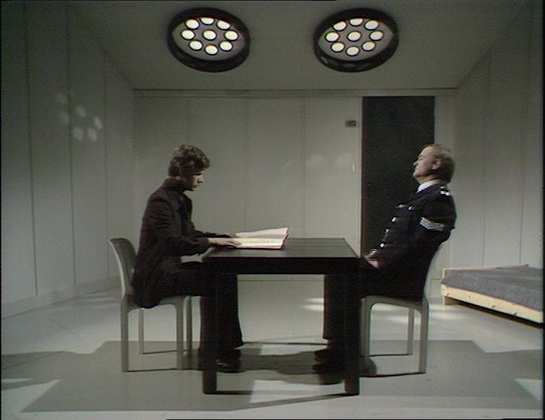
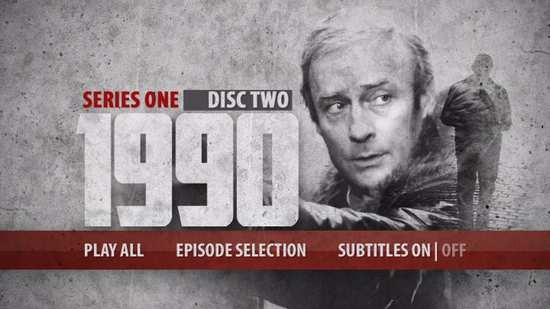
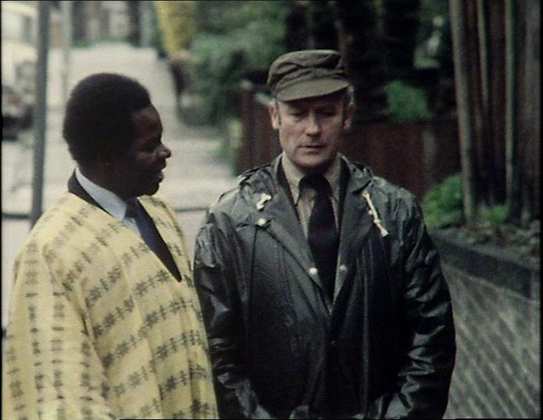
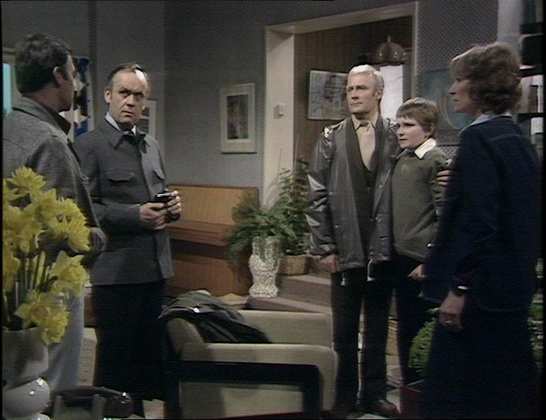
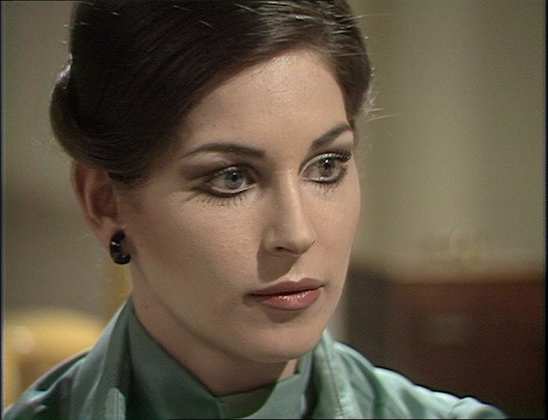
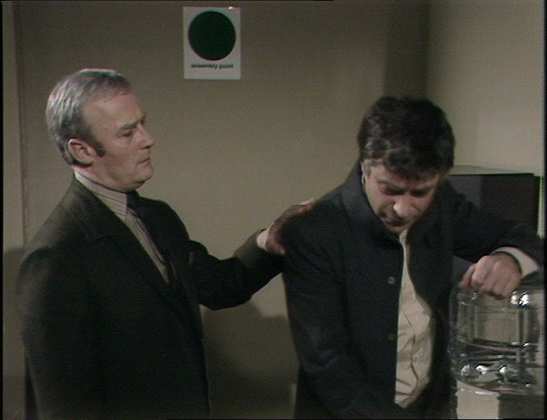
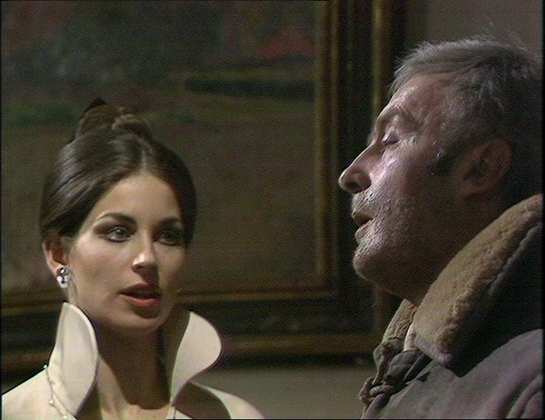
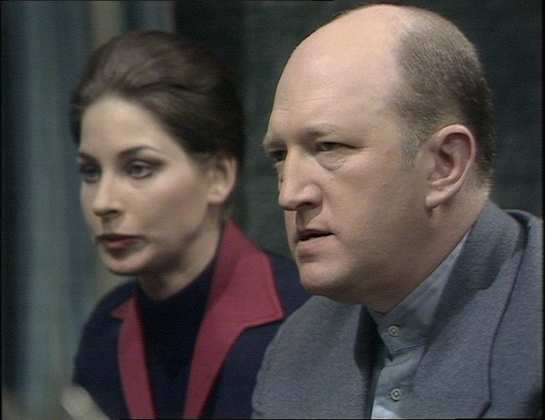
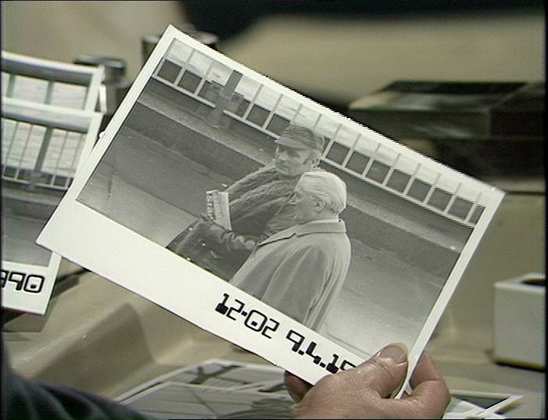
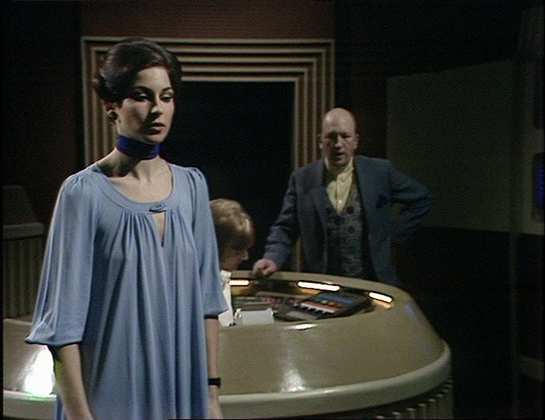
Your Opinions and Comments
Be the first to post a comment!